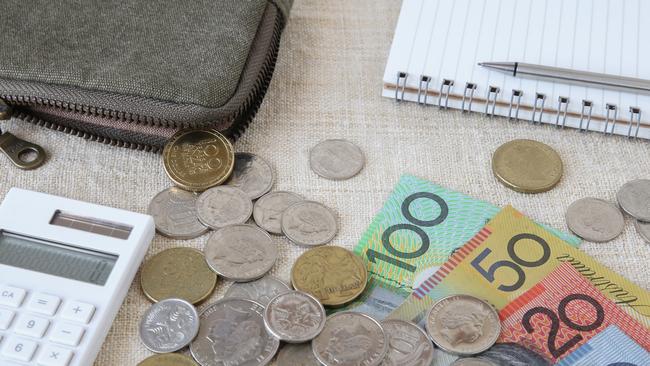How Victorians are spending their money: ABS survey
VICTORIAN households are shelling out almost $75,000 a year on general living expenses, a major study of spending habits reveals. See what we are spending our money on.
VIC News
Don't miss out on the headlines from VIC News. Followed categories will be added to My News.
VICTORIAN households are shelling out almost $75,000 a year on general living expenses, a major study of spending habits reveals.
And families feeling the pinch are diverting a bigger share of cash to essentials rather than life’s little luxuries.
More than half of our budgets are blown on “basics” — a share that has steadily risen for three decades, Australian Bureau of Statistics data shows.
RELATED: PRICE RISES IN AUSTRALIA
The Household Expenditure Survey found that in 2015-16 essentials cost $843 of the average $1430 Victorians spent on goods and services each week.
Housing costs — on rent, mortgages, rates and home-and-contents insurance — were the biggest drain ($257).

Food, including meals out and non-alcoholic drinks, cost $244, and transport — driving, taxi fares, and train, tram and bus fares — cost $218.
Nationwide, the latest survey found housing, food, energy, health care and transport “essentials” were swallowing a growing share of spend as opposed to “discretionary” purchases.
ABS RESEARCH REVEALS HOUSEHOLD DEBT HAS DOUBLED OVER 12 YEARS
Georgie Whyte, of Brunswick, said she had cut back on expenses to control growing cost of living pressures.
“Little things like cooking at home and preparing your meals seem really thrifty to other people, but it makes a big difference,” she said.
“Food and rent are the big expenses. It is possible to still go out on the weekend, but you have to be smart about it.”
The latest survey found “essential” purchases on housing, food, energy, healthcare and transport were swallowing a growing share of expenditure when compared with “discretionary” purchases.
“A growing portion of weekly outlays is spent on basics,” ABS chief economist Bruce Hockman said.
“Spending on basics accounted for 56 per cent of weekly household spending in 1984, growing to 59 per cent in 2015-16.”

Housing made up 20 per cent of weekly expenses, food 17 per cent, and transport 15 per cent. In 1984, food took up 20 per cent, transport 16 per cent, and housing 13 per cent.
Education spending rose 44 per cent from the last survey in 2009-10.
Spending on services and operations such as childcare, cleaning products and pest control climbed 30 per cent, energy and healthcare both by 26 per cent. Spending on alcohol and clothing and footwear fell slightly.
Overall, average spending on goods and services jumped 15 per cent from 2009-10, and was almost triple that in 1984.
The ABS said this was partly due to inflation and demographic changes in age groups and households with mortgages or dependent children.


